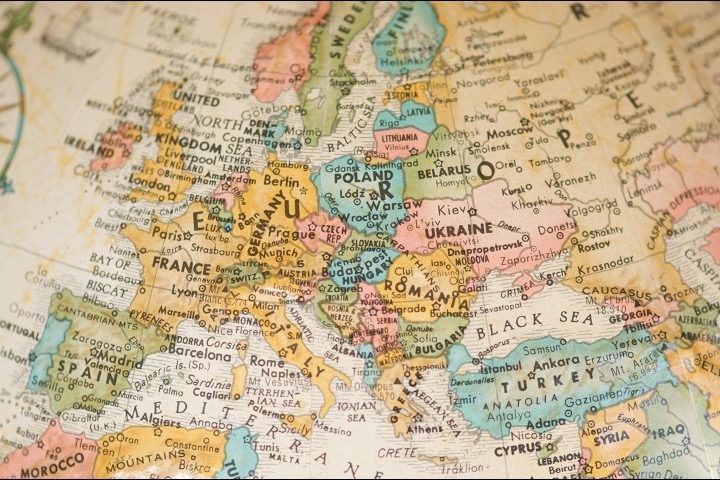
NATO Secretary-General Jens Stoltenberg has called on the bloc’s members to step up defense production in the event of “a confrontation” with Russia “that could last decades.” Stoltenberg has repeatedly warned that Western economies are ill-prepared for such a conflict.
With Ukraine’s counteroffensive faltering and Russian forces expected to capture the major Donbass stronghold of Avdeevka, media reports have noted the rising shortage of men and ammunition embattling Kyiv.
Amid warnings of “a cascading collapse along the front,” Stoltenberg told Germany’s Die Welt newspaper that NATO members must increase arms production to fulfill Ukraine’s demand.
“We need to restore and expand our industrial base more quickly so that we can increase supplies to Ukraine and replenish our own stocks. That means switching from slow production in times of peace to fast production, as is necessary in conflicts,” he said.
NATO recently signed contracts worth $1.2 billion to produce around 220,000 155-millimeter artillery shells, bringing to more than $10 billion the amount spent by the bloc on ammunition deals in the past six months. Nevertheless, the latest contracts will not be fulfilled until the end of 2025, and earlier ammunition pledges to Ukraine — like the million artillery shells promised by the EU — have not been met.
Meanwhile, American stockpiles have been running out due to Washington’s effort to arm both Ukraine and Israel, and a $61 billion military aid package promised by the White House remains stalled in Congress.
“NATO is not looking for war with Russia. But we have to prepare ourselves for a confrontation that could last decades,” Stoltenberg told Die Welt. “If [Russian President Vladimir] Putin wins in Ukraine, there is no guarantee that Russian aggression will not spread to other countries.”
Stoltenberg is one of various Western political and military leaders to predict an impending Russian attack on the bloc. Danish Defense Minister Troels Lund Poulsen, Swedish General Micael Bydén, Estonian Prime Minister Kaja Kallas, and British Defense Minister Grant Shapps have all stated in recent weeks that such a conflict could erupt in as little as three years.
Besides the fact that attacking NATO territory would enter Russia into a war with the entire alliance, Russian officials have repeatedly maintained that Moscow has no geopolitical, economic, or military interests in Poland or the Baltic states.
“It is absolutely out of the question,” Putin told American journalist Tucker Carlson earlier this week. “You just don’t have to be any kind of analyst, it goes against common sense to get involved in some kind of global war. And a global war will bring all of humanity to the brink of destruction. It’s obvious.”
Putin argued that Western leaders are “trying to intimidate their own population with an imaginary Russian threat.” These predictions, he said, “are just horror stories for people in the street in order to extort additional money from US taxpayers and European taxpayers” to keep weapons and ammunition flowing to Ukraine.
Since the conflict between Kyiv and Moscow broke out almost two years ago, 1.1 million Ukrainians have escaped to Germany, as per the German Interior Ministry. Additionally, the influx of newcomers from other countries, including Syria, Afghanistan, and African nations, persists unabated.
In 2023, more than 350,000 people applied for asylum in Germany, the highest number since 2016, the Federal Office for Migration and Refugees (BAMF) reported last month.
The German government estimates that approximately 10 million people would flee Ukraine if the country falls apart, Die Welt said in an article on February 10, citing anonymous security officials and a lawmaker. The vast majority of these people would head westward in attempts to reach Germany, the media outlet reported.
Roderich Kiesewetter, an MP from the opposition Christian Democratic Party, told reporters that European nations should step up support for Ukraine, since U.S. President Joe Biden’s aid package remains stalled in Congress.
“If we don’t change our strategy on support for Ukraine, the worst-case scenario of a massive exodus from Ukraine and a spread of the war to NATO states will be much more likely,” the lawmaker predicted. Kiesewetter cautioned that in this case, “ten million refugees are a rather lowball assumption.”
Last week, the governor of the German state of Hesse, Boris Rhein, announced that the federal government and all 16 states of the country had agreed to issue special debit cards to refugees, which are supposed to supersede cash payments during the course of the year.
As per the official, the cards will “prevent the possibility of transferring money from state subsidies to countries of origin, and thus combat … human-trafficking.”
Pre-paid cards will seemingly have limited functionality, with features such as free cash withdrawal and transfers to recipients inside and outside of Germany disabled. They will also not work outside of the country, or even a designated municipality within it.
Last month, the German parliament passed legislation that enables the deportation of failed asylum seekers and grants additional powers to the police. The new rules considerably extend the custody period pending deportation, in order to avoid situations in which failed applicants can abscond around the time they are supposed to be deported.
Moreover, Tesla and SpaceX CEO Elon Musk slammed Biden after the American leader lambasted Congress for not approving more funding for Kyiv. The billionaire said the conflict between Ukraine and Russia should already have ended.
In a post on X (formerly Twitter) on February 9, Musk remarked on Biden’s statements during his meeting with German Chancellor Olaf Scholz earlier in the day. The Democrat leader had suggested that the failure of the U.S. Congress to continue to support Ukraine would be “outrageous” and would border on “criminal neglect.”
The U.S. has for months struggled to authorize new funding for Kyiv due to resistance among Republicans, who have demanded more money for security on America’s southern border. While Biden recently endorsed a $118 billion bill, $60 billion of which was set aside for Ukraine, many GOP members have opposed it, saying it does not do enough to tackle the border crisis.
Responding to Biden’s criticism of Congress over Ukraine, Musk stated that “it is time to stop the meat grinder,” adding that this “should have been done a year ago.”
Previously, Musk also argued it is “insane” to send “so much money to Ukraine with no accountability and no end game.”
Russia has repeatedly said it is open to peace talks with Kyiv, but stated that Ukrainian leader Volodymyr Zelensky banned any negotiations with the current leadership in Moscow. The leader signed the ban in 2022 after four former Ukrainian regions overwhelmingly voted to join Russia.
Russia and Ukraine came close to settling the conflict in the spring of 2022, with Ukrainian neutrality a key point on the agenda, Moscow claimed. Russian officials have said that the process, however, was sabotaged by then-U.K. Prime Minister Boris Johnson, who advised Kyiv to keep fighting — an allegation he rebuffs.
In January, Russian Foreign Minister Sergey Lavrov said that any talks on resolving the conflict should be done with the West, which he claimed has shown no interest in doing so.


